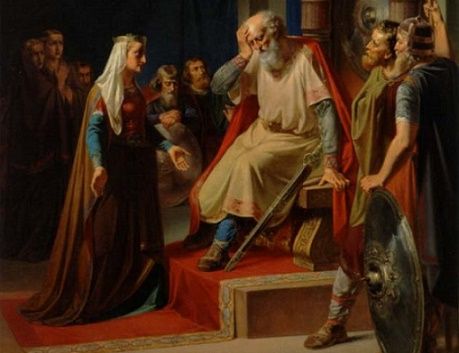Danes are proud they have the oldest monarchy in the world, and many believe (even if they are a little deluded given the nature of Christian IX’s accession) that there is a direct genetic link between the present-day royal family and King Gorm the Old from the 10th century.
Gorm, who reigned from around 936 until around 958, is famous for having the older of the Jelling Stones made to honour his wife, Thyra. However, the latest research shows that Queen Margrethe is just as likely to be related to Gorm as a great many other Danes are, Videnskab.dk reports.
“Nowadays we have a very genetic understanding regarding family relations, and if you use the term in the modern sense of being a blood relative or having an identical gene pool, then the answer is ‘No’ if you ask whether Margrethe is related to Gorm,” said Professor Jes Fabricius from Copenhagen University’s Saxo-Instituttet.
Secret tunnel discovered under royal palace
Engineers for SWECO called in to carry out a survey for a storm drain at Amalienborg Palace stumbled on more than they had bargained for. The find was a 35-metre-long secret tunnel built by the Danish resistance during WWII to evacuate the royal family in the event that the Germans might try to intern them as hostages during the final days of the war, reports Ingeniøren. The tunnel stretches from the Ridehuset by Christian VII’s Palace on the south side of Frederiksborggade and across to the garage complex on the north side. If the worst came to the worst, the royal family would use the tunnel and then be driven by ambulance to Gentofte Hospital, where they would take over one of the senior doctor’s houses there under the code name of ‘Grocer Bodenhoff and wife’.
Computer games can boost children’s desire to learn
A diagnosis such as ADHD or dyslexia, or just bad social interaction with class-mates or teachers, can lead to children feeling left out, and this can then lead to disruptive behaviour in class. However, research carried out by the universities of Aalborg and Aarhus has shown that computer games can increase the feeling of inclusion for children who have difficulties in school, reports Videnskab.dk. When teachers use digital and analogue games in their lessons, the children become more motivated and get on better in class. The researchers used an online action role playing game, ‘Torchlight II’, in which the children played as a team so they had to work closely together to avoid ‘dying’. The game was combined with other tools to estimate the children’s development and to promote positive social behaviour.
Danish researcher makes breakthrough on black holes
A Danish researcher at Princeton University, Johan Samsing, has made a discovery that could bring astronomers closer to being able to answer whether collisions between black holes take place. By measuring gravitational waves, it is possible to find traces of black hole collisions in the universe, reports Jyllands-Posten. His research reveals it can be seen whether collisions take place between isolated binary stars or through chaotic movements in extremely tightly-packed star systems.
Danish West Indies a magnet for the sick
Shipborne tourism to what was the Danish West Indies and is now the US Virgin Islands is not a new phenomenon. Already as far back as the first half of the 19th century, sick people were travelling from the cold northern states of the US to the Caribbean Islands in the hope of improving their health, Videnskab.dk reports. It was especially people with lung conditions who made the journey. Tuberculosis was very common at that time and it was thought that sea air could cure the disease.











